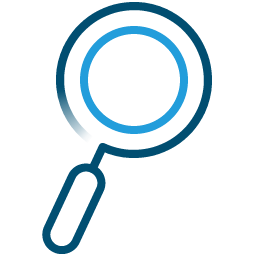What are antibiotics for, and why is it important to adhere to any treatments prescribed?
What are antibiotics for?1
The treatment for RTIs will depend on the underlying cause.
- If your infection is caused by a virus, it just needs to run its course and should clear up by itself within a few weeks. Antibiotics only work against bacterial infections, so they will not help treat viral infections.
- If your infection is caused by bacteria, such as pneumonia, antibiotics may help. If appropriate, your doctor may prescribe a course of antibiotics.
Why is it important to adhere to the treatment?
First, it is important to be adherent because the medication will not work unless it is taken2.
In the specific case of the use of an antibiotic, misuse or non-adherence also contributes to the public health problem of antibiotic resistance3.

What is antibiotic resistance3?
Antibiotic resistance occurs when bacteria that cause infections change (or mutate) and become resistant to antibiotics. This means that antibiotics lose their effectiveness in killing bacteria. Instead of being killed by antibiotics, some bacteria survive and continue to multiply, causing more harm. The main cause of antibiotic resistance is the misuse and overuse of antibiotics (e.g., using antibiotics when they are not needed).
What does “adherence” mean?
Adherence is the degree to which a patient follows a doctor’s prescription4.
For any medication prescribed by your healthcare professional, it is important that you:
- Start the treatment: It is important to consult your doctor so he/she can find the best treatment solution for you. You may discuss with the doctor:
- the benefits/risks of the solution the doctor is offering
- concerns you may have
- challenges you anticipate and solutions that may be found
Once you agree to a treatment, start it. It is the first step towards managing your condition.
- Follow the instructions of the doctor in terms of dosage and frequency of medicine: A lower dosage of the medicine can be inefficient; a higher dosage can be harmful. It is also important to take medicine in the prescribed intervals: if the prescription is for seven pills a week, once per day, taking seven pills altogether in one day does not mean you are following the treatment. If you missed a dose or you think you have difficulties in following the treatment in the right way, solutions always exist. Do not hesitate to contact your doctor to discuss them.
- Take the treatment if it is prescribed. If the doctor prescribes you a treatment for an intended duration, it means that the medicine will be effective only if taken over that duration. Otherwise, it might be ineffective, harmful, or both.
- If you feel that the treatment is not adapted to you or have any concern, do not stop treating yourself on your own. Talk to your doctor and describe to him/her the situation. Alternatives may exist.
- If you start feeling better and your symptoms disappear before the end of your scheduled treatment period, it is important to keep taking your treatment for the whole course.

Remember that “adherence” not only means “medication adherence.” It also means adopting a healthy lifestyle, as may be recommended by your doctor. For example, smoking cessation can be important when you suffer from RTIs.
If you experience difficulties adhering to treatment, consult your doctor. Discuss with him the actions you can put in place to improve your treatment adherence. Do not start, discontinue or change a treatment without doctor’s prescription.







